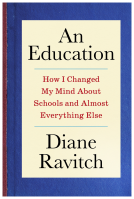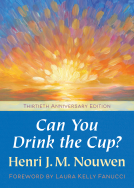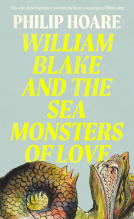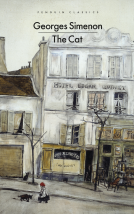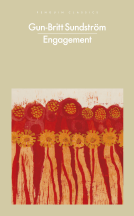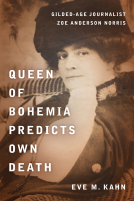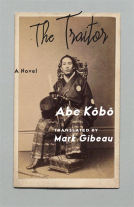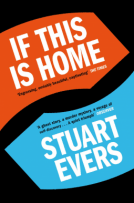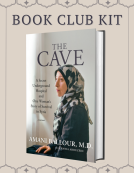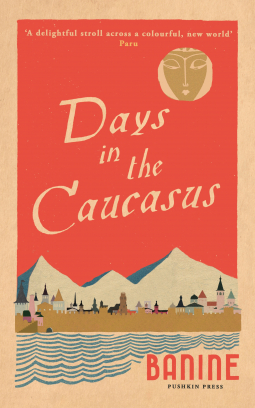
Days in the Caucasus
by Banine
This title was previously available on NetGalley and is now archived.
Send NetGalley books directly to your Kindle or Kindle app
1
To read on a Kindle or Kindle app, please add kindle@netgalley.com as an approved email address to receive files in your Amazon account. Click here for step-by-step instructions.
2
Also find your Kindle email address within your Amazon account, and enter it here.
Pub Date 2 Mar 2021 | Archive Date 29 Nov 2020
Talking about this book? Use #DaysintheCaucasus #NetGalley. More hashtag tips!
Description
This is the unforgettable memoir of an 'odd, rich, exotic' childhood, of growing up in Azerbaijan in the turbulent early twentieth century, caught between East and West, tradition and modernity.
Banine remembers her luxurious home, with endless feasts of sweets and fruit; her beloved, flaxen-haired German governess; her imperious, swearing, strict Muslim grandmother; her bickering, poker-playing, chain-smoking relatives. She recalls how the Bolsheviks came, and they lost everything. How, amid revolution and bloodshed, she fell passionately in love, only to be forced into marriage with a man she loathed- until the chance of escape arrived.
Advance Praise
'A delightful memoir of an eventful life set against the helter-skelter of the 20th century' Financial Times
'Every so often a voice emerges from the archive so vivid that it seems impossible that it should ever have been forgotten' Evening Standard
'I started to leaf through the book and was soon engrossed... So vividly and wittily does the author reveal to us an utterly unfamiliar world' Teffi
'A romantic and gloriously comic account of a heady and turbulent youth spent on the shores of the Caspian... Banine's autobiography captures a rarefied world on the brink of extinction... What commends Days in the Caucasus, quite aside from its rakish narrative, is [her] exquisite prose and unremitting eye for comic absurdity even amid the profoundest personal tragedy' Bryan Karetnyk, Spectator
Available Editions
| EDITION | Other Format |
| ISBN | 9781782274872 |
| PRICE | CA$31.00 (CAD) |
| PAGES | 288 |
Average rating from 13 members
Featured Reviews
 Christina D, Educator
Christina D, Educator
A very unusual book and fun to read! Even though it was originally published In French and Azeri (I believe) over sixty years ago it felt very current. Kudos to the translator! The descriptions of her relatives and others made me laugh out loud. On a more serious note, sadly, the same ethnic battles and deaths are still happening today.
Days in the Caucasus is a rich text, full of place and description. I enjoyed reading this work immensely, and recommend it for readers who are on the lookout for a powerful memoir and a lovely literary voice.
 Mandy J, Reviewer
Mandy J, Reviewer
Umm-El-Banine Assadoulaeff was born in Baku, Azerbaijan in 1905 into one of Baku’s wealthiest families, millionaires thanks to the oil boom. She lived a life of luxury until the Bolsheviks came and her country was later absorbed into the Soviet Union. Banine, the name she adopted after her emigration to France, lived a life of privilege during these turbulent times, until it was all snatched away from her and from her family. But this is definitely not a “woe-is-me” memoir, but an enchanting, vivid portrait of an unfamiliar and now vanished world. The history of Azerbaijan, its customs and culture, come to life in Banine’s recounting. In turns romantic, tragic, comic, it’s an absorbing and wonderfully atmospheric book that takes the reader right into an unknown world. Written in 1945 but only now translated into English, it’s a gem of a book that I read almost at a sitting. Highly recommended.
what a beautiful, exceptional read. the storytelling was incredible, I felt truly immersed in the characters and environment. the story left me even after I finished the last page. an incredible read.
Days in the Caucasus is a great read. Published back in the 1940s, it has been translated into several languages. Banine grew up in the southern region of what would become the Soviet Union, in one of the -Stan regions. Her writing is frank and blunt. I thought her descriptions of her family were vivid and crisp. I enjoyed her depctions of her aunts and grandmother. She lived in a diverse area, encountering many different languages and nationalities. I know very little of those region so it was educational to read her memories of her childhood, WWI, and how the Communists took over.
 Hilary W, Reviewer
Hilary W, Reviewer
This is the new English translation of Banine’s 1945 French text that brought her to literary prominence in Paris, the city of her exile. She was born in 1905 in Baku, Azerbaijan. Her family had become wildly wealthy as the result of oil reserves on their lands. So, as she recognised, her family was made up of older members raised in rural peasant traditions, with a Muslim (cultural not religious) background and later generations expectant of so much more. Rules for women were different to men and very strictly controlled by the family. By the time of her childhood as her father’s generation started to run the internationally linked businesses there was wider contacts and life styles for the men – and more slowly for some of the women. Banine the youngest of three sisters had lost her mother but was given a close and influential German governess, until in her teens her father re-married another woman who had been raised in Russia. But in the family her grandmother was the matriarch who ruled (as far as possible) her own extended family, servants and protégées.
The family industrial links were initially with the German and Russian spectrum, albeit that Paris was seen as the model for culture. But with the outbreak of war in 1914 things became more complicated. With the Russian Revolution in 1917 things changed more radically still. Azerbaijani independence followed and her father became a government minister. But by 1920 the new Russian Soviet Army had invaded and the new Republic was overthrown. Her father was imprisoned and it took time for the family – through links, bribery and corruption – to see him freed and allowed into exile. His daughter (Banine) would eventually follow to Paris.
So this vibrant, busy and detailed book talks to Banine’s early life until her arrival in Paris in her early twenties. We are shown her immediate family life (she privileged in the hierarchy) when with her father away she was raised by Frau Anna. This would follow western education, culture and standards. But her alternative lifestyle would be in the house of her grandmother – either for family events or more usually extended summer seasons on their houses on the Black Sea. Banine claims that as a child she was deeply inspired by the natural landscape. There would be raucous family life, busy, quarrelsome, competitive, but with the children largely allowed to run wild with no clear direction, until that is they came to the attention of grandmother. There were “standards” for the girls, although we see her regularly competing with her favoured (and manipulative) male cousins. Through Babine’s depiction we see that the girls will be expected to marry early and, through arranged marriages, to male members of their own family to preserve the family wealth. We are shown the machinations and the rather juvenile behaviour while at the same time she recounts highly sexualised awareness by the girls. Early marriages turned regularly to affairs and broken marriages, all adding to the dramas of family relations.
While remembering that this is a retrospective view from twenty plus years later – with suspiciously detailed recreations of childhood thoughts, passions and images – it is a very vivid view of a cultural life under both gradual economic and social change and the through war to something further only just hinted at. It shows the transitions from peasantry and agricultural-life that had existed for over a thousand years, to what we might recognise as closer to “modern” international industrial life. It shows expectations on largely powerless females, once close to purdah, and how changes play out in multigenerational families. It shows how families which might apparently be close and united could be deeply divided and factional – and how those of “lesser” status could be rendered very vulnerable and their children too.
But these fifteen or so years depicted – hinting forward and reminiscing back - are an interesting display of a country and culture in rapid transition. But also of how international, political, economic and cultural links can meld and move on too. But bizarrely in this book we can see the foundations of the bitterness that was being played out between Azerbaijanis and Armenians still and violently this year. A view of a particular time is therefore much more than might be expected at first glance.
 Naomi S, Bookseller
Naomi S, Bookseller
A thoroughly fascinating account of growing up in Azerbaijan that left me hungry to know more about the author's life. This insight into often overlooked Azerbaijani history is much needed, and this makes the memoir very refreshing. The author's feelings about her family, and the interactions between them, engage the reader from the beginning and create quite the rapport between author and reader.
Readers who liked this book also liked:
Philip Hoare
Arts & Photography, Biographies & Memoirs, Nonfiction (Adult)
Pirkko Saisio
Biographies & Memoirs, General Fiction (Adult), Literary Fiction
We Are Bookish
Biographies & Memoirs, Health, Mind & Body, Nonfiction (Adult)
